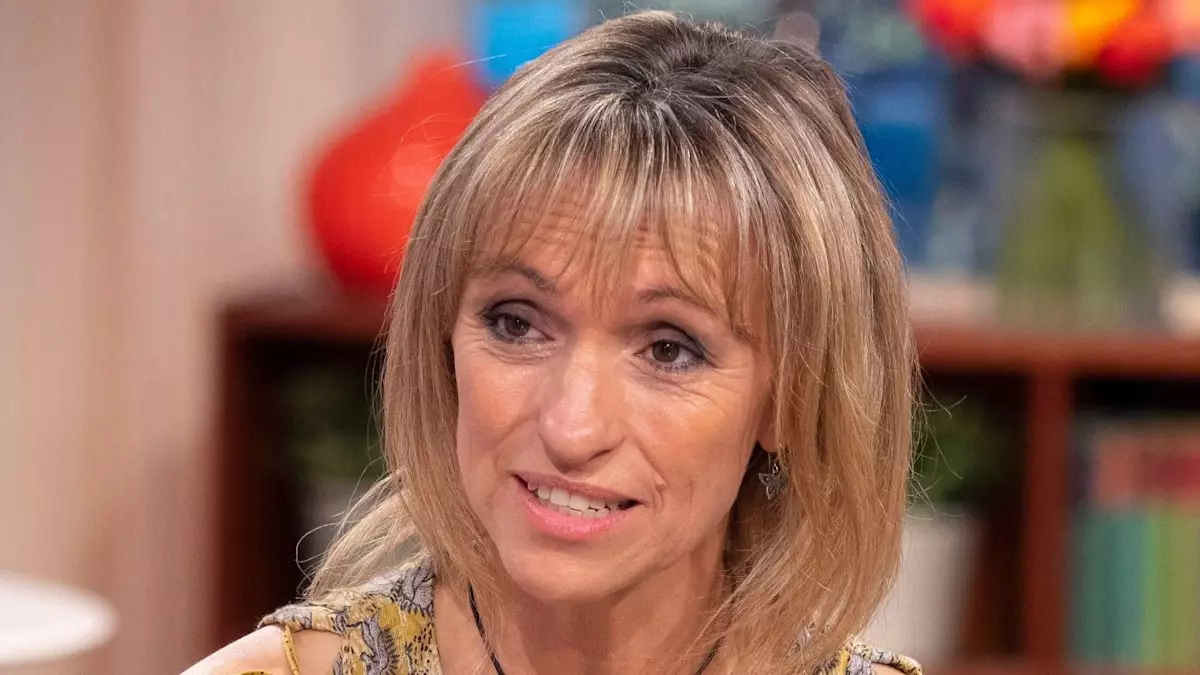Michaela Strachan’s candid conversation about her breast cancer diagnosis, shared during her recent appearance on Vanessa Feltz’s show, serves as a powerful reminder of the emotional and physical toll that such a life-altering event can have on an individual. Diagnosed in 2014, Strachan reflects on the overwhelming feelings that surged when she learned that she would need a double mastectomy. As she articulated, “My boobs were never a big part of my personality, but when they said they were going to take them away, they suddenly became more important than I thought they were.” This statement echoes a profound truth: often, our identities can become intricately linked to our physical bodies in unexpected ways.
Her journey brought forth a revelation that many, even in their healthiest states, seldom contemplate—the notion of bodily autonomy and the emotional implications tied to it. Strachan conveys the complexity of feeling that arises in the face of potentially lifesaving but radical decisions. A routine mastectomy, which many may consider purely a medical issue, unfolds into an emotional labyrinth that can take years to navigate. The disparity between her initial perception of the procedure and the post-surgery emotional reality showcases how breast cancer reshapes personal narratives and identities.
The Brutality of Medical Choices
Strachan’s perceptive criticism of current medical practices regarding breast cancer treatment underscores a growing conversation in society about the adequacy of existing solutions. Her poignant observation that she hopes future generations will view the surgical removal of breasts as an archaic practice speaks volumes about the need for innovation in healthcare. “It’s brutal!” she confesses, revealing how the severity of the procedure weighs heavier than the risk of cancer itself. For those who haven’t experienced it firsthand, the emotional impact of such medical decisions may elude understanding; however, Strachan’s openness invites broader conversations about the complexities involved in treating life-threatening conditions.
What she highlights here isn’t just the trauma associated with surgery but the underlying sentiment that patients often grapple with during their recovery. Strachan’s experience speaks to the potential for advancements in cancer treatment, aiming for less invasive methods that preserve physical integrity while ensuring long-term health. It is her hope, shared earnestly with her audience, that innovative treatments can emerge, leading to a future where such drastic measures are no longer deemed necessary.
Recovery and the Path Forward
Navigating through the recovery process, Strachan shared valuable insights into the challenges that accompany a double mastectomy. The six-week recovery period, compounded by another six weeks dedicated to reconstruction, is more than just a physical challenge; it can be an emotional upheaval for individuals grappling with their new reality. She stated, “Now, day to day, I forget that I ever had breast cancer. I was really lucky.” This reflection not only provides hope to those currently facing similar situations, but it also reveals Strachan’s resilience and adaptability in moving forward.
The psychological shift from intense daily reminders to a state of normalcy, where the trauma fades into memory, highlights a remarkable facet of the human spirit—that we can recover and rediscover joy. Yet it’s essential to acknowledge that not everyone may arrive at this point so easily. Strachan’s perspective invites others to discuss the emotional carefulness required during recovery, imparting that the psychological toll often persists long after physical wounds have healed.
Personal Connections and Relational Dynamics
Strachan’s long-term relationship with Nick Chevallier adds another layer of complexity to her narrative. She reflects on entering a partnership with someone who was navigating his own grief following the loss of his previous wife to cancer. This context reinforces the notion that love and relationships can emerge from shared vulnerabilities, but also pose unique challenges. The dynamic of blending families while processing prior traumas can be a rich ground for growth or conflict, depending on the emotional readiness of all involved.
Interestingly, Michaela’s choice to avoid marriage, citing the unnecessary costs associated with it, is a refreshing take on traditional relationship norms. It displays her pragmatic approach to love, emphasizing that commitment transcends formalities. This decision, paired with her openness to discuss heavy topics like cancer, positions Strachan as a role model for embracing both life’s challenges and the personal choices we make within our relationships. Such authenticity is not only powerful but also crucial in inspiring others to share their stories and find strength in vulnerability.

